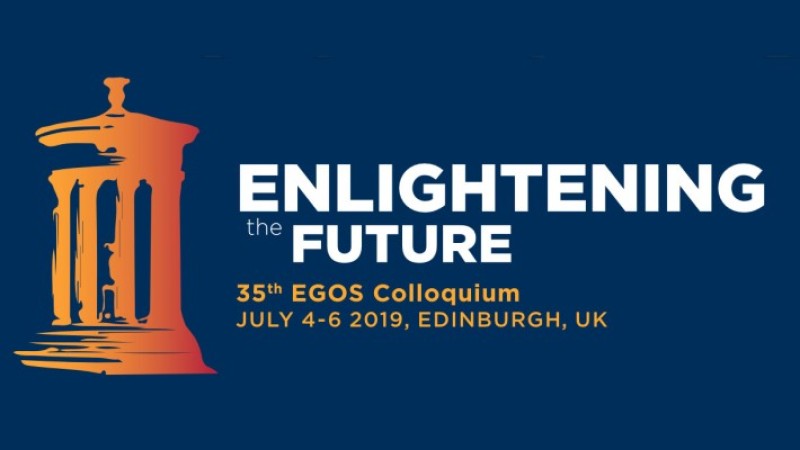Sub-theme 31: The Agency-ing of Agency: Linking Actors and Institutions
Call for Papers
It is a widespread view that agency stems from the freedom or autonomy actors obtain vis-à-vis the institutional contexts
in which they are embedded. Agency is thus tied to the capacity of actors to circumnavigate, resist or act in ways that evade
the constraints imposed by these contexts and is considered a foundation for renewal, innovation and change in organizations,
professions and fields. At the same time, agency is treated as a pre-given ontological constant, an independent or exogenous
force that exists sui generis from the contexts in which actors operate. This limits the ability of the concept to
explain institutional reproduction and change by glossing over how institutional environments empower or incline actors to
act in certain ways while precluding, disengaging or dis-incentivizing others (see, for example, Abdelnour et al., 2017; Emirbayer
& Mische, 1998; Hacking, 1999).
What is missing in such a widely-diffused understanding of agency is
the agency-ing of agency: the forms, cultural schemes, processes and resources that shape the capacity of actors
to act in specific ways (e.g. as financial experts, accountants, university professors, managers) that transcend the biological
makeup and psychological predispositions of individuals (Kallinikos et al., 2013; Searle, 1995, 2010). Though recently diluted,
the assumption that agency is constructed rather than found has been central in institutional theory. Agency forms are fashioned
on the basis of cultural and instrumental experiences, including power relations and ideologies, underlying particular organizations,
professions and fields (Meyer & Jepperson, 2000).
The agency-ing of agency is both a social ontology
and a fundamental epistemological lens. It is a window to reality that shifts attention from agency as a cause or exogenous
force of organizational reproduction and change to the material, cultural and social processes and resources that constitute,
direct and intermingle agency forms with the rationalization of organizations (Kallinikos et al., 2013; Townley et al., 2003).
Many of these forms coincide with ubiquitous means through which purposeful action is structured and mediated such as procedures,
routines and roles, measurement and performance systems, hardwired ways of codifying and instrumentalizing tasks, the making
of international standards and protocols, climate and health policy, and indicators to measure, simulate and influence reality.
Standardardized measures, in particular, have acquired new momentum over the last couple of decades, perpetuating metrics
for ranking and evaluation across societal and policy domains (Espeland & Sauder, 2007; Hasselbladh & Kallinikos,
2000; Miller & Power, 2013).
These developments acquire particular importance in the context of the ongoing
and often profound digital transformation of our societies. Daily action patterns and forms of agency are currently interspersed
by the power of contemporary technologies. These include the diffusion of algorithms, machine learning, sensors and actuators
that increasingly construct complex entanglements of material and social forces that require conceptual analysis and empirical
investigation. Such changes often transcend the bounded space of organizations, shaping consumption patterns over the Internet,
restructuring media power (Turow, 2011) and impinging upon primary forms of relating and interacting (e.g. social media; cf.
Alaimo & Kallinikos, 2017).
Our sub-theme aims to explore the implications of the above for how we understand
agency and formal organizing through the following and related questions:
What new tasks, routines, action protocols and agency forms do these developments promote?
How do employees digitally renegotiate how work and their private sphere are related?
Will increasingly transparent and technified work processes alter fundamental notions such ‘accountability’, ‘autonomy’ and ‘collaboration’?
Is work socialization becoming oriented to mastering formal skills?
How will the ongoing datafication and looming robotization of human services affect the role of what were once understood as uniquely human qualities in working life, such as social responsiveness, empathy and compassion?
How do international standards, measures and standardization construct or change agency forms in social and public policy forums?
We invite conceptual and empirical contributions in one or more of the following:
Agency, skills and knowledge
Accounts of field emergence and change
Codification, knowledge and action
Performance and role systems
Ratings, ranking and actors
Machines, algorithms and agency
Technological transformation and merging of fields
Personalized consumption and the Internet
Power and international standards
Climate and public policy measures, indicators and simulations
References
- Abdelnour, S., Hasselbladh, H., & Kallinikos, J. (2017): “Agency and institutions in organization studies.” Organization Studies, 38 (2), 1775–1792.
- Alaimo, C., & Kallinikos, J. (2017): “Computing the everyday: Social media as data platforms.” The Information Society, 33 (4), 175–191.
- Emirbayer, M., & Mische, A. (1998): “What is agency?” American Journal of Sociology, 103 (4), 962–1023.
- Espeland, W.N., & Sauder, M. (2007): “Rankings and reactivity: How public measures recreate social worlds.” American Journal of Sociology, 113 (1), 1–40.
- Hacking, I. (1999): The Social Construction of What? Cambridge, MA: Harvard University Press.
- Hasselbladh, H., & Kallinikos, J. (2000): “The project of rationalization: A critique and reappraisal of neo-institutionalism in organization studies.” Organization Studies, 21 (4), 697–720.
- Kallinikos, J., Hasselbladh, H., & Marton, A. (2013): “Governing social practice: Technology and institutional change.” Theory and Society, 42 (4), 395–421.
- Meyer, J.W., & Jepperson, R.L. (2000): “The ‘actors’ of modern society: The cultural construction of social agency.” Sociological Theory, 18 (2), 100–120.
- Miller, P., & Power, M. (2013): “Accounting, organizing, and economizing: Connecting accounting research and organization theory.” Academy of Management Annals, 7 (1), 557–605.
- Searle, J.R. (1995): The Construction of Social Reality. New York: Simon & Schuster.
- Searle, J. (2010): Making the Social World. The Structure of Human Civilization. Oxford: Oxford University Press.
- Townley, B., Cooper, D.J., & Oakes, L. (2003): “Performance measures and the rationalization of organizations.” Organization Studies, 24 (7), 1045–1071.
- Turow, J. (2012): The Daily You. How the New Advertising Industry is Defining Your Identity and Your Worth. New Haven: Yale University Press.


